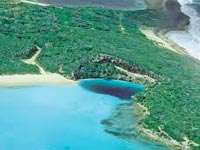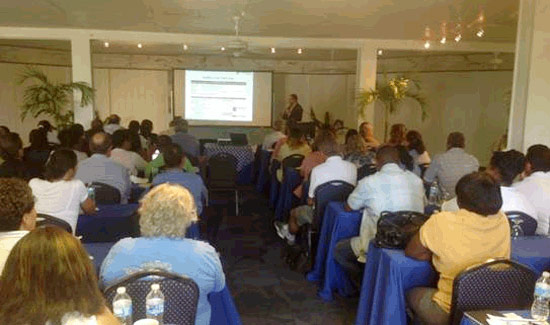In the Tribune of December 3, 2010 I read a letter entitled, “We must avoid trying to create acrimony for foreign investors.” This was a letter written by Mr. Rick Lowe and commented on by the editor of the Tribune concerning comments I had made about the dredging at Bell Island.
Still having a bit of “male chauvinist pig” left in me at 72, I will answer the lady first. I agree whole heartedly with her comments about the destruction of monuments in Egypt in order to save lives. History shows that this is widespread. During the Second World War many historic sites and documents were destroyed and gallons of human blood shed to preserve our freedom so that we fools could use, abuse and destroy it fifty years later.
Reading the Editor’s note was a good history lesson but all it did was to muddy the waters. I am glad, however, that she finally said that “there is no comparison between Egypt and Bell Island, except the same principle applies … there has to be a bit of give and take provided no damage is done to Exuma’s precious marine park.”
Everyone knows that there is a continuous struggle between “environment” and “development.” There must be give and take. That is the rule of thumb. But the destruction of a national treasure for one man’s pleasure is, to say the least, a stretch.
To save lives in Egypt and the destruction of national treasures during war in the pursuit of freedom is one thing. But the destruction of national treasures that destroys livelihoods and restricts freedoms is something else.
The editor contends that scientists (environmental studies) confirm that there will be no damage done to the environment if the Aga Khan is allowed to carry on with his proposed activities at Bell Island. I disagree.
The BNT and the Minister of Environmental Destruction contend that the environmental studies show that there will be no “appreciable” damage done to the environment. They further contend that using “modern methods” will guarantee this “minimal damage.”
This is interesting. I am sorry, but I have seen the results of many so-called “environmental studies” gone wrong to convince me that the old adage “the person who pays the Piper names the song.” Frankly, I don’t trust them. Has anybody told us what these “modern methods” are that will confine the sediment to a restricted area when the digging will be something like fifteen feet deep over an area several acres in the middle of the Park? Has anyone ever told us what will happen to the thousands of baby conch living several hundred feet from the proposed dredging site?
I’m no scientist, but I’m no fool either. Nor are the Bahamian people. My “gut feel” and common sense tells me that there is something wrong here. If all was so right, why don’t they tell us what these “modern methods” are and why have they not released the environmental study so that the Bahamian people can properly decide for themselves? I’ll tell you why. Because I suspect they can’t without exposing themselves.
The editor suggests that the Aga Khan should be given access to his private property … “and this can only be done by boat, and as night follows day, a boat needs a channel.” True. But God has already taken care of that for us. He has given Bell Island two channels … one deep and one shallow. What more does a man want? He could, of course, use his helicopter.
And now to Mr. Lowe. For him to say that this development would only affect a fraction of the Park is not quite correct. If one has ever flown over an area that is being dredged in the water it would be obvious that the sediment from the dredging would cover miles and cause irreparable damage to reef for miles around.
At no time in my article did I say that the Aga Khan, or anybody else for that matter, would be asked to leave Egypt. How could the Aga Khan be asked to leave Egypt? Leave the Government’s office to be sure, but not to leave Egypt. There is a tremendous difference.
How does Mr. Lowe conclude that my letter would create mistrust and acrimony for foreign investors when I was simply asking a question … “How would Egypt handle a similar situation involving one of its National Treasures?” If I wanted to know how another country would react, would I not be well advised to ask someone who is from or familiar with the area?
I was suggesting that the government should ask any outsider to show the same respect for our National Treasures as we would be expected to show for theirs.
It’s past the time that our leaders (not only politicians) develop some kind of guts and national pride.
In case certain people are running late to catch the helicopter, let me ask the Aga Khan myself: Is it unreasonable, sir, to ask you to show the same respect for our national treasures as we would be expected to show for yours?
Pierre Dupuch



